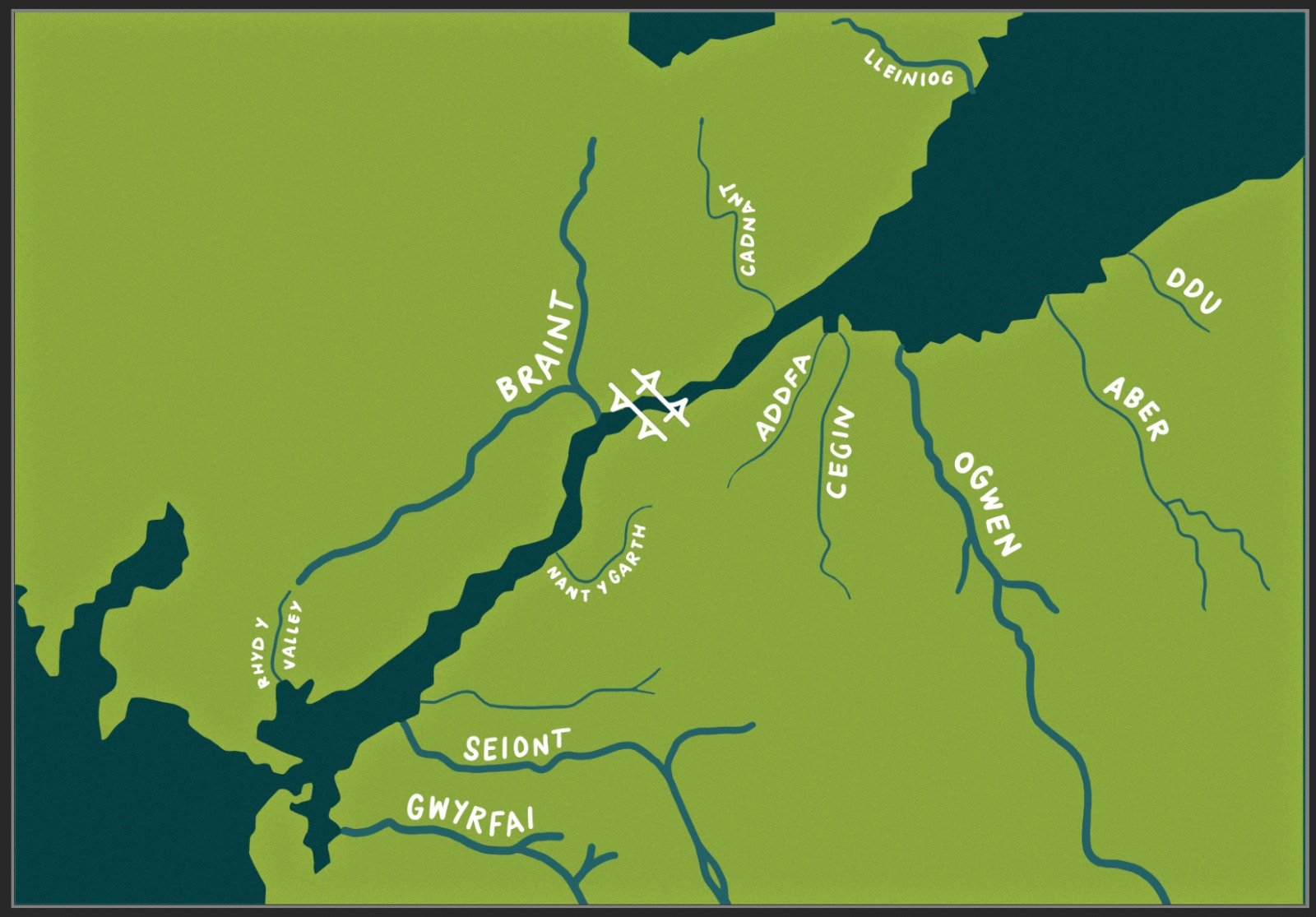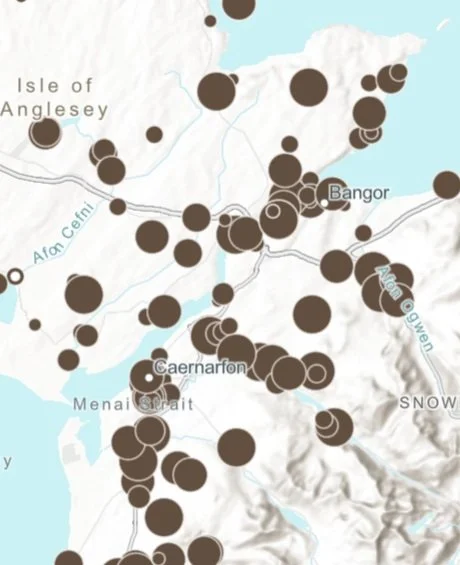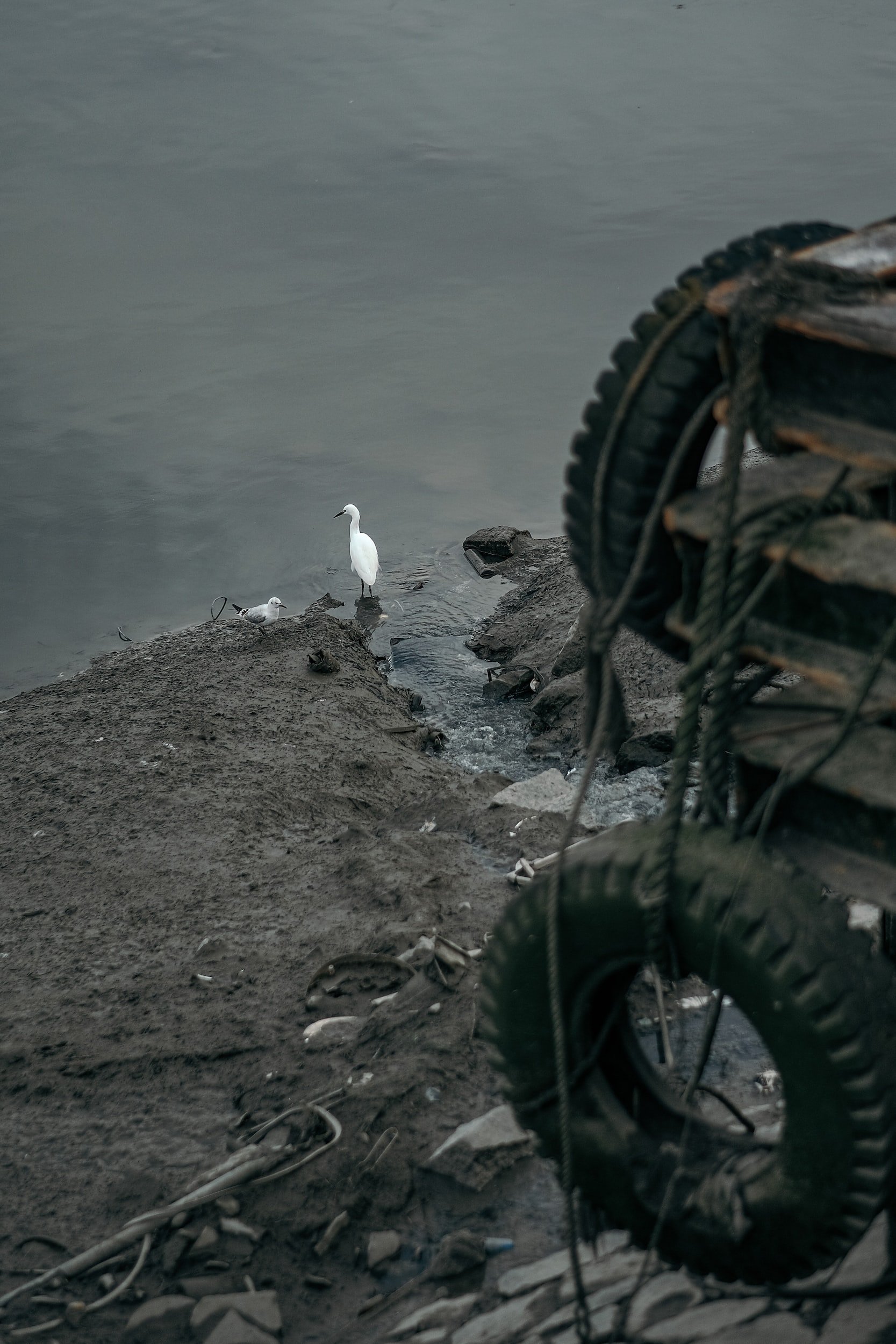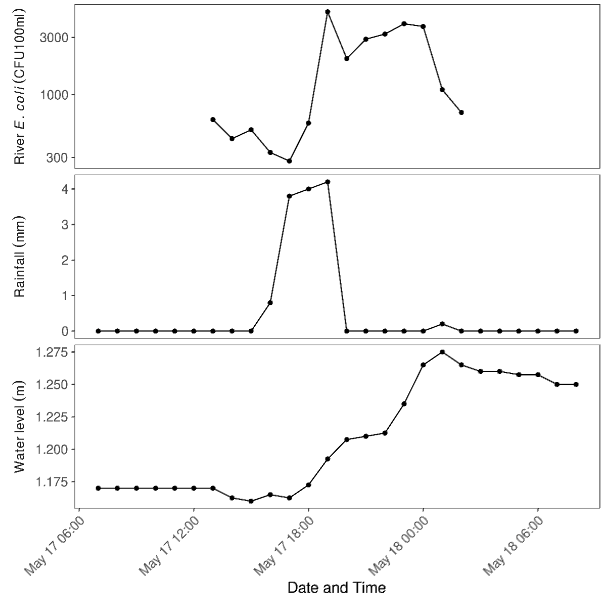Rivers Of The Menai
Thirteen rivers drain in to the Menai Strait. Nine from the mainland and four from Ynys Mon. Acting as vectors for pollution into the Menai Strait.
Rivers of the Menai.
North Wales Rivers Trust is experienced in the issues facing our rivers and solutions to improve them. Not only do they act as vectors to carry nutrients into the Strait, but they also carry with them pollutants. Ocean Clean Up has estimated that 1% of rivers cause 80% of ocean pollution. As part of the Menai Strait Partnership Forum, we will be dedicated to finding out which rivers are causing a significant impact on the Strait. There are many sources of pollution and nutrients. Some of these can be beneficial, and others detrimental. From surrounding land use, high sewage release in low flows, agriculture, and sediment loss- the majority of all negative impacts are down to humans. The way we produce food, live our daily lives, consume goods, and flush down the toilet. Other factors such as climate change result in more intensive rain and drought, urbanisation, and impenetrable surfaces such as tarmac exacerbate flooding.
North Wales Rivers Trust is focused on using nature-based solutions to slow the flow, filter pollutants, campaign for stricter sewage regulations and monitoring, and cool down rivers to stop invasive blooms and drought using nature-based interventions. All of which will have a positive impact on the health of the Menai Strait.
42,631 hours of sewage released into the Menai Strait in 2021
In 2021, 4,913 spills from combined sewer overflow (CSO) sites within the Menai Catchment were recorded. Spilling for a total 42,631 hours (equivalent to 1776 days in a single 365 day year). The source of these recorded spills was from 103 CSO sites located within the Menai Catchment. You can view these in detail using the map below.
In 2020, 5,477 spills were recorded spilling for 42,430 hours.
In 2019, 5,699 spills were recorded spilling for 41,800 hours.
The trend shows that although spill incidents are slightly decreasing, the hours they spill for is increasing. Suggesting that when they do spill, they spill for longer periods of time.
CSO Release
Releasing sewage into rivers introduces a large amount of nutrients into the water. This process, known as eutrophication, can have serious consequences. When sewage is released into rivers, it contains a lot of nitrogen and phosphorous. These can stimulate the growth of algae, such as phytoplankton in the water or mats known as biofilms in the sediments, which can lead to algal blooms.
'A large amount of algae has an impact on the rest of the ecosystem, such as blocking out the light that plants need for photosynthesis. When these plants, and the algae itself, start to die, they are eaten by bacteria which reduces oxygen in the water, killing fish and other organisms.
How does this impact the Menai Strait?
The water quality in the Menai Strait is generally good. This is shown by the seasonal mussel classification of B with one section being A. However, there is room for improvement to take the next step in achieving the next caliber of water quality.
Water samples taken may not represent the overall water quality as they could overlap with a cso release indicating poorer quality than average. These spikes caused by CSO release may be preventing a classifaction of A throughout the mussels zones and needs to be approved.
The Menai Strait is unique as the majority of the water in the Strait is flushed out to the open sea frequently. Consequently, any influx of sewage into the Menai is generally dissipated more quickly than estuaries.
Fecal Coliforms
In general, increased levels of fecal coliforms provide a warning of failure in water treatment, a break in the integrity of the distribution system, possible contamination with pathogens. When levels are high there may be an elevated risk of waterborne gastroenteritis.
Research from CEFAS shows that there has been an increase in fecal coliforms between 2016 and 2020 in the Menai Strait. This is likely due to the increase in rainfall as can be seen by the Spearmans Rank correlation, which suggests after heavy rainfall faecal coliforms increase and stay in the water for some time after.
Higher rainfall means CSO’s can spill more frequently and for longer, releasing untreated sewage into the water system.
Other factors affecting water quality
Take a look through some of the other factors posing a risk to the water quality in and around the Menai Strait, and potentially increasing risk to the water quality.






